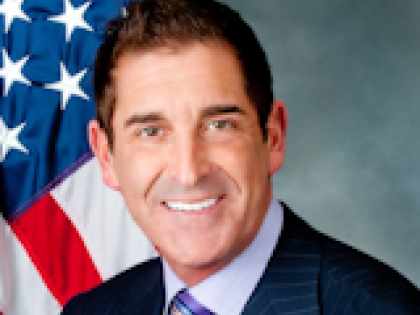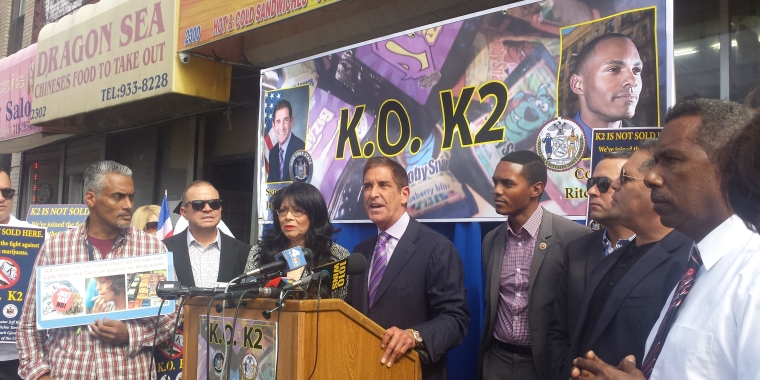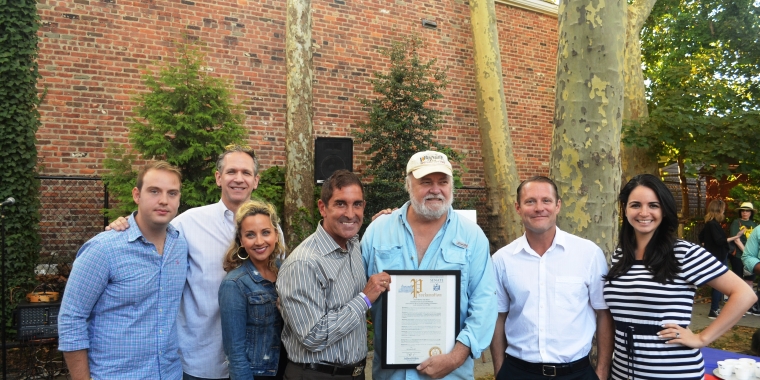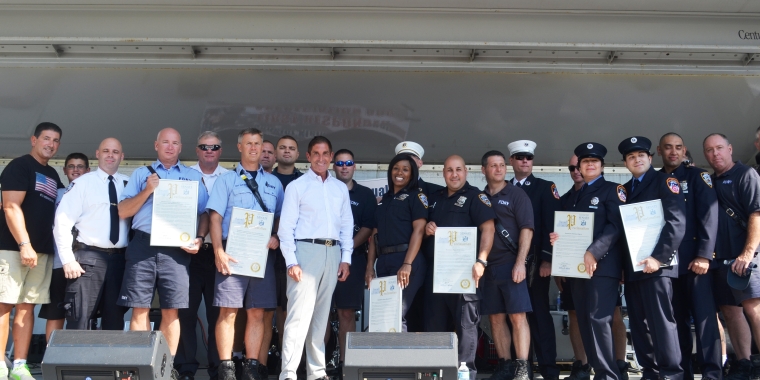
Senator Klein releases new investigation on New York City’s ‘Dirty Dozen’ buildings
October 15, 2015
Bronx, NY — State Senator Jeff Klein (D-Bronx/Westchester), joined by State Senator José M. Serrano (D-Bronx), Assemblyman Victor Pichardo (D-Bronx), Assemblyman Luis Sepulveda (D-Bronx), community leaders and experts, today released, “The Dirty Dozen: Dirty and Infested Air in Subsidized Apartments in New York City.”
The scathing investigative report tracked subsidized developments in New York City with the highest number of mold and pest violations, conditions which cause diminished indoor air quality and lead to asthma or other respiratory illnesses.
Bronx developments topped the “Dirty Dozen” list, shedding new light on why a disproportionate number of Legionnaires’ disease cases likely claimed the lives of 12 and sickened over 120 people in the South Bronx this summer. Legionnaires’ struck again last month and took a life in Morris Park.
“It is no wonder that The Bronx has suffered a disproportionate number of Legionnaires’ cases, when you look at these subsidized buildings left in fetid conditions. This filth is scientifically connected to asthma and other respiratory illnesses, which also leave residents at a higher risk for Legionnaires’, and numerous other diseases. Unscrupulous landlords are giving these tenants squalor for our dollar and it’s unacceptable. Leaving residents in taxpayer subsidized buildings wallpapered in mold and crawling with roaches and mice is simply not going to be tolerated. These dirty conditions lead to asthma and respiratory illnesses and my report established that the worst violators are in The Bronx and other areas where we see high asthma rates,” said Senator Klein.
“Senator Klein's report shines a strong light on the disreputable landlords and unacceptable living conditions that far too often exist in our community. Many of the chronic ailments seen in The Bronx — such as asthma and other respiratory conditions — can be linked to mold and other deplorable living conditions that many residents are forced to live with. I applaud Senator Klein for publishing the ‘Dirty Dozen’ report and for calling for immediate remediation of these unsafe living conditions,” said Senator Serrano.
“Exposure to mold and pests has a direct and detrimental impact on health. Conditions such as these are unsafe and unlivable, and no tenant, subsidized or not, should have to live like this. I am not shocked that asthma is linked to these conditions and disproportionately affects The Bronx and my very own constituents. Today, I stand alongside my colleague, Senator Klein, to stress the importance of clean and safe housing conditions, as I refuse to let my neighbors continue to be susceptible to disease. I thank him for his leadership on this issue,” said Assemblyman Pichardo.
“The health of Bronx residents is not expendable, and residents of subsidized housing cannot be given anything short of top priority by the city’s health and housing code inspectors. I applaud the invaluable work of Senator Klein and Assemblyman Pichardo to expose the ugly truth about the heightened health risk in The Bronx — especially to seniors, children, and those with suppressed immune systems — from unmitigated filth and unchecked, hazardous air quality,” said Assemblyman Sepulveda.
The analysis focused on pest and mold violations issued to 2,528 publically subsidized developments. The “Dirty Dozen,” accounted for nearly 20% of all violations, 543 of 2,736 total violations issued to these buildings.
Mold exacerbates asthma symptoms and can cause other respiratory illnesses. The World Health Organization determined that mold could increase the risk for asthma.
Cockroach infestations also are linked to asthma, according to the World Health Organization. Allergens from roach droppings, eggs and shed shells worsen asthma attacks and respiratory problems.
Rodents, particularly mice inside buildings, produce allergens that irritate asthma sufferers. Allergens like shed fur, dried urine and droppings significantly reduce indoor air quality.
Low-income neighborhoods that face high asthma hospitalization rates correlated with areas that had concentrations of high numbers of violations for pests and mold: the South Bronx, Harlem, North Brooklyn and the North Shore of Staten Island.
“There is an urgent need to address common housing problems that affect health. This investigative report and its recommendations represent an important step in tackling mold and pests to protect the health and safety of our most vulnerable community members. Measures like this are needed to reduce asthma onset and exacerbation. I commend Senator Klein for his leadership on this issue,” Dr. Diana Hernandez, Assistant Professor of Sociomedical Sciences at the Mailman School of Public Health at Columbia University.
“In addition to the oversaturation of industrial, waste transfer and other diesel truck-intensive facilities disproportionately impacting our health in the South Bronx, it is important to look at housing conditions contributing to the problem, particularly when such developments receive subsidies,” said Mychal Johnson, co-founder of South Bronx Unite. “While the dirty dozen fall outside of Community Board 1, we, too, have a host of bad actors in the area of housing and look forward to greater accountability.”
Senator Klein made a series of recommendations for New York City’s unscrupulous landlords to cleanup their acts:
· Department of Health should be empowered to eradicate cockroach infestations if derelict landlords fail to take action. Currently, the DOH can only eradicate bedbugs and rodents.
· The Housing and Preservation Department (HPD) should heighten tenant awareness on pest and mold prevention and reporting through campaigns in buildings that rack up three or more violations.
· HPD should develop a Mold and Pest Taskforce to monitor buildings that accumulate five or more violations in two years.
· Serial violators should post bonds to ensure compliance with regulations. This money would be used to finance any cleanup efforts the city needed to make if a landlord failed to take action on a complaint. It would be refunded if a building remained violation free for three years.
· The City should be allowed to impose civil fines on serial violators above fines for violations.
· The State Senate and Assembly must pass S.1105, sponsored by Senator Klein, and A.6505-A, sponsored by Assemblyman Marcos Crespo, to create a statewide asthma disease management system to better track asthma, its triggers and direct education and preventative care to targeted areas.
related legislation
Share this Article or Press Release
Newsroom
Go to Newsroom
Senator Klein Hosts Third Annual City Island Clam Chowder Festival
September 21, 2015

Senator Klein Hosts Fifth Annual First Responders Appreciation Barbeque
September 21, 2015

